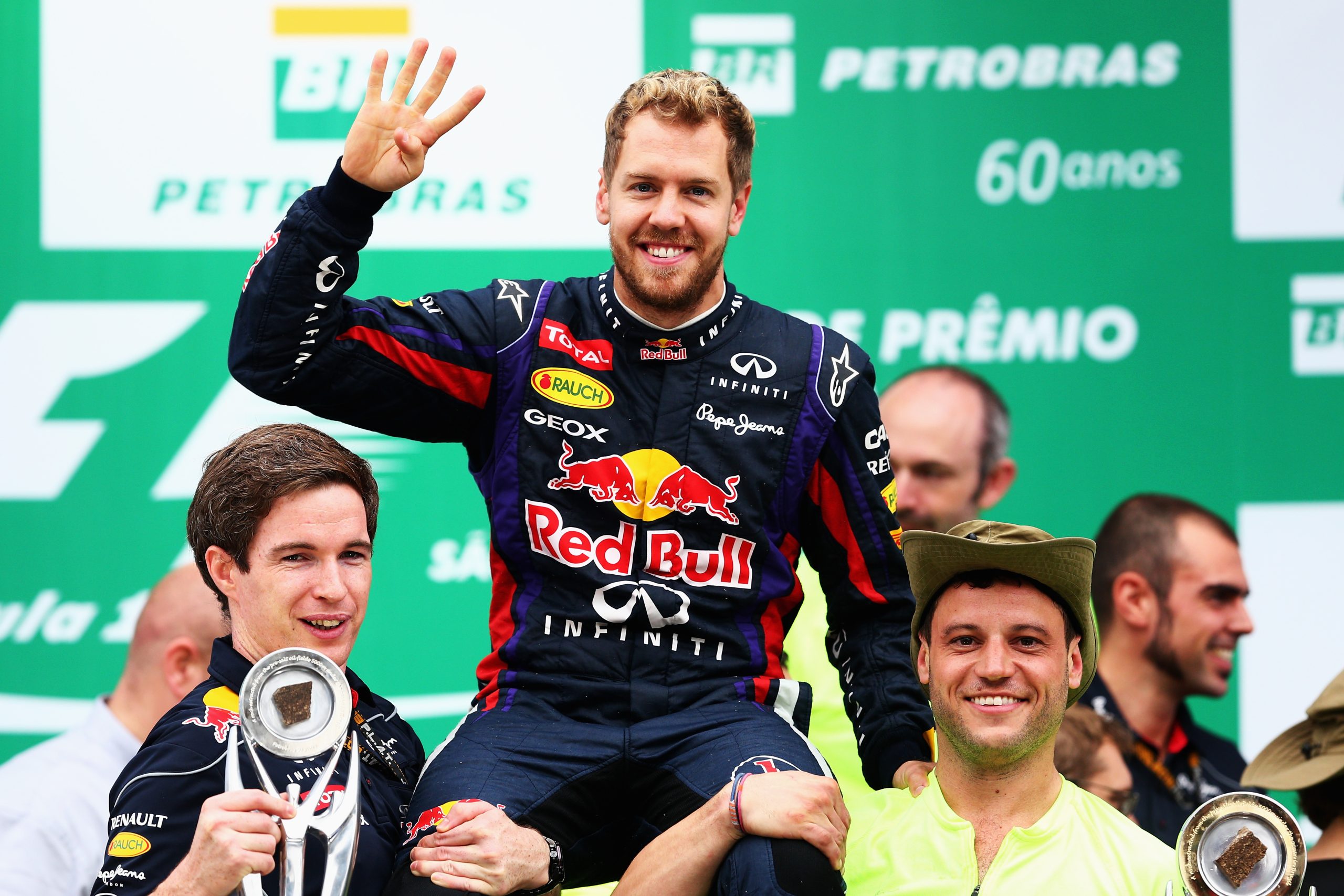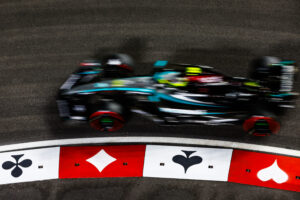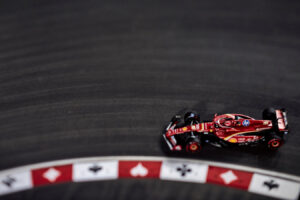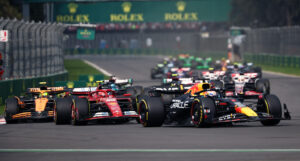How Sebastian Vettel played a role in Red Bull clinching their 6th Constructors’ Championship at the 2023 Japanese Grand Prix.
At the 2023 Japanese Grand Prix, despite one of their cars retiring from the race, Red Bull secured their 2nd consecutive Constructors’ title. Red Bull are now 6-time Constructors’ Champions. In their last two runs to the title, Max Verstappen has been a crucial part of the team securing both titles. The 2022 season saw Verstappen win 15 out of the 22 races, and score about 59% of Red Bull’s points. So far this season, the Dutchman has scored about 64% of the team’s total points.
This is not the first time Red Bull has had a dominant car and a dominant driver. The team’s 4 other titles come from the brilliance delivered by F1 veteran, Sebastian Vettel.
Sebastian Vettel became a household name when he raced for Red Bull. The German driver won a whooping 4 titles in a row in a very competitive era of F1.
2010
Sebastian Vettel replaced David Coulthard at Red Bull for the 2009 season. Vettel had a very impressive first season with 4 pole positions, 8 podium finishes and 4 race wins. He also won the 2009 DHL Fastest Lap Award, as he achieved the highest number of fastest laps that season. Vettel’s performances were enough for him to finish the season as runners-up behind Brawn driver, Jenson Button. Vettel seemed to still be springing with confidence by the time the 2010 season was underway.
At the Bahrain Grand Prix, he took the first pole position of the season and led most of the race. However, he finished 4th due to a spark plug failure. Vettel was unable to win until the third race of the season which was at Malaysia.The 2010 season was competitive and saw Sebastian Vettel, Mark Webber, Fernando Alonso, Jenson Button and Sir Lewis Hamilton sharing wins between them all throughout. At no point was there a driver that would win a race while leading the World Championship.
Tensions were high at Red Bull, when Mark Webber was Sebastian Vettel’s teammate. At the Turkish Grand Prix, when Webber was leading, Vettel tried to pass him on lap 40. The two Red Bulls ended up colliding. Vettel retired whilst Webber recovered to finish third. A few races later, team principal Christian Horner removed the new front wing from Webber’s car and placed it on Vettel’s car for qualifying and the race, after the German driver’s wing was damaged in the final practice session.
In Brazil, Red Bull scored their fourth 1–2 finish of the season. This earned them enough points to be named World Constructors’ Champion in just their sixth year in the sport.
The final showdown
The Abu Dhabi Grand Prix was the final race of the season. An intense title fight was still on. Vettel, Webber, Hamilton and Alonso could still win the Championship. Alonso needed to finish fourth to claim the title, but was only able to finish 7th. Webber mirrored Alonso’s strategy and finished 8th. Hamilton finished second whilst Vettel won the race. The Abu Dhabi Grand Prix was the only point that Vettel led the 2010 World Championship. 1964 and 1976 are the only two other times in the history of F1 where the Drivers’ World Champion led the championship only for the last race.
That’s not the only piece of history Sebastian Vettel rewrote that day. On the day he won his first-ever Championship, he became the youngest to ever win an F1 Drivers’ Championship.That was just the start of Sebastian Vettel’s reign at Red Bull in Formula One.
2011
The defending World Champion started his 2011 campaign strong, with a win at the first race of the season. He won three of the first four races of the season, claiming pole in all four.In 2011, the Red Bull appeared to be the fastest car, and Vettel was the fastest driver. Competition levels were still high, with McLaren’s of Hamilton and Button close enough to take advantage of any falters by Vettel and/or Red Bull. Ferrari driver Fernando Alonso was a constant contender for the podium throughout the season as well.
Rule changes
At the European Grand Prix, the FIA enforced a ban on engine mappings. It was believed by some in the press that this was an attempt by the FIA to hinder Vettel’s early domination. Despite that, the German claimed pole with the fastest-ever qualifying lap at the Valencia Street Circuit. Vettel dominated that weekend with his first hat trick of 2011 – pole position, fastest lap and race win – and won his sixth race in eight races.
The FIA implemented yet another rule change at the British Grand Prix. This time in relation to off-throttle blown diffusers with Red Bull believing this would cost them about half a second a lap. During the race, there was another tense Red Bull moment when Vettel held off Webber for second place.
Webber had ignored a radio message from the team principal Christian Horner to hold position, but Vettel was able to hold him off to finish 2nd. It was only the second time in the sport’s history that a driver had finished in the top two in the first nine races of a season and won at least six of them.
Critical Consistency
Vettel was on a run of fourteen successive front-row starts and eleven successive top-two finishes but that ended at his home race, where he qualified 3rd and finished the race 4th. He was however back on pole for the next Grand Prix which was in Hungary, and he finished the race 2nd behind Jenson Button.
In Italy, Vettel found himself making history yet again. The German took his tenth pole position of the year, joining Ayrton Senna who was previously the only driver to have taken ten pole positions in two separate seasons.
Furthermore, he became the youngest ever double back-to-back champion after a podium finish in Japan secured his second successive title with four races left before the season concluded. The Korean Grand Prix was next and with both Red Bulls finishing 1st and 3rd, the team were able to secure their 2nd consecutive World Constructors’ Championship.
Vettel broke the record for the most pole positions in a season at the season finale in Brazil where he claimed his 15th pole of the year. It was a successful year for the young German with 15 poles, 11 victories, and 17 podiums in a 19-race season.
2012
The 2012 season was not as smooth sailing for Vettel or Red Bull. It was a season that saw 8 different race winners, including two first-time winners, four new faces on the podium and a title fight that went down to the wire in Brazil. It was a tough battle for the title contenders all season long. Alonso and Vettel were the main title contenders, but both Button and Hamilton momentarily led the Championship standings. Button and Hamilton won a few races, and appeared on the podium from time to time as did Kimi Raikkonen who had 1 race win and a couple of podium finishes.
The Mclaren threat
Vettel started the 2012 season with a 2nd place at the Australian Grand Prix. He finished outside the points in Malaysia after colliding with a backmarker. Sir Lewis Hamilton got pole in both races and finished on the podium, unlike Vettel. Jenson Button won the Australian Grand Prix, with Fernando Alonso taking victory in Malaysia.
Early on in the season, the McLaren had proven to be the fastest car, especially over a single lap. Fernando Alonso and Sebastian Vettel proved fast for Ferrari and Red Bull respectively. However, it was clear that their cars needed upgrades if they were to remain in the battle.
Come Bahrain, at the fourth race of the season, Red Bull made changes to their floor. The results were almost instant. Vettel claimed his first pole of the season. The Red Bull driver went on to round off the weekend with a hat trick – pole position, race win and fastest lap. Unfortunately for Red Bull, they remained inconsistent. They still couldn’t get their car working how they wanted in the first half of the season.
This was no good news for Vettel whose aim was to defend his 2011 title. Fernando Alonso found himself ahead of Vettel in the Championship in the span of 10 races. This was all the way from Monaco to Japan. By that point, Vettel had only managed only 6 podium finishes with only 3 of those as race wins.
Second half dominance
The second half of the season was better for Red Bull, with fewer reliability issues. In the last 10 races, Vettel was on the podium 7 times, with 4 fastest laps, 3 pole positions and 4 race wins. The title went down to the wire at Interlagos.
All hope looked lost when a poor start by Vettel and a collision with Bruno Senna halfway through the first lap damaged the back of his car. He dropped to the back of the field as a result. All the while, Alonso moved back into a prospective title-winning position from seventh on the grid. However, rain and safety cars allowed Vettel to climb his way into the top 10, and eventually finish P6. Alonso’s P2 was not enough for the Spaniard to claim the title. Vettel became the ninth, and youngest, three-time World Champion in Formula One history.
Red Bull were named 3-time Constructors’ Champions as well, with Mark Webber finishing with more points than Alonso’s teammate at Ferrari, Felipe Massa.
2013
In the first half of the 2013 season, Mercedes had the quickest car over a single lap. From the second half of the season onwards Red Bull led the way with the quickest car over a single lap at every race. Sebastian Vettel took advantage of that and won all nine of the remaining rounds.
Vettel started the first two races of the 2013 season on pole position. He didn’t win the first race, but he won the second one which was in Malaysia. He did not without controversy though. Vettel ignored team orders and passed Webber for the lead adding to the tension in the already fragile relationship between the two drivers.
Despite such controversies, this was another season where Vettel broke records, and it is considered his most dominant and most impressive season ever. In the 2013 season, Vettel equalled Michael Schumacher’s record for most race wins which was at thirteen. Vettel won the last nine races of the season with grand slams in both Singapore and Korea. By winning nine races in a row, he set the then-record for most consecutive race wins.
Sebastian Vettel became a four-time World Champion at the Indian Grand Prix. He became the youngest ever four-time World Champion. Vettel finished the season with 397 points. At that point that was the most points ever scored by a driver in a season. The 397 points were also more than what second-placed Mercedes scored.
The four-time World Champion’s Red Bull teammate Mark Webber registered his first winless season since 2008. He finished his last season in F1 in third place with 199 points. Their combined results allowed Red Bull to clinch the 2013 Constructors’ Championship in India with 3 races to go.






